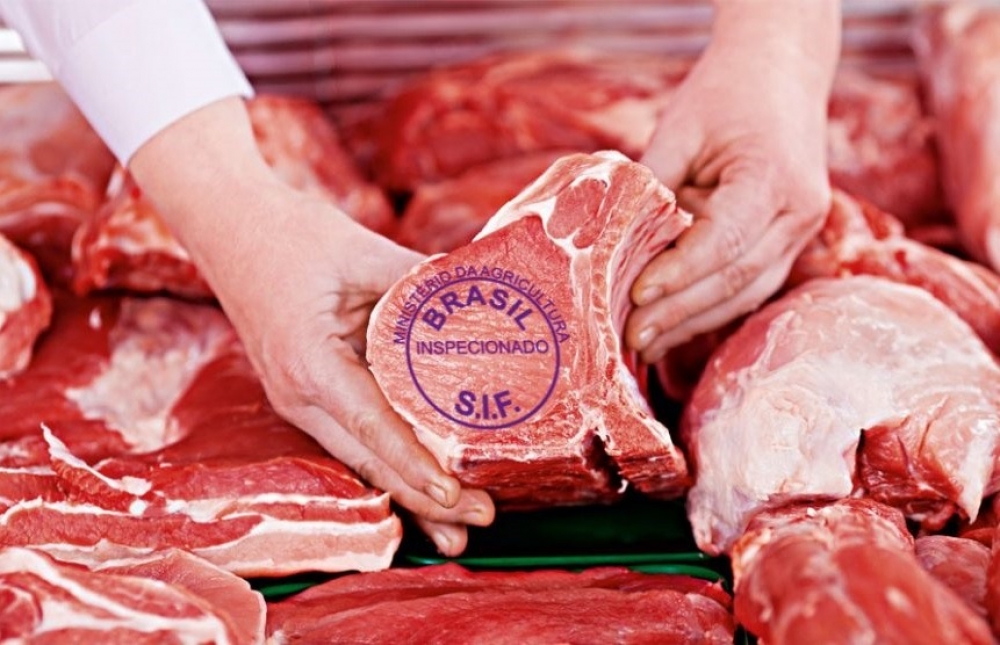RIO DE JANEIRO, BRAZIL – In another move that thwarted Jair Bolsonaro’s administration, the US refused to open its market to Brazil’s fresh beef, a pledge that was part of negotiations on a strategic partnership with President Donald Trump.

The US decision is the result of a technical inspection led by the Department of Agriculture in Brazil, the report of which was provided to the Brazilian government on Thursday, October 30th.
The report requested additional information from Bolsonaro’s government and established that a new inspection on the quality of meat should be carried out in Brazil, according to people who know the document.
Only then – the Americans say – could the ban on Brazilian meat in that country be lifted. According to government officials, this could delay the opening of the US market by about a year.
Agriculture Minister Tereza Cristina was disappointed with the contents of the report, as she felt that all the information requested by the US had been clarified. There would, therefore, be no need to schedule a new visit to the country.
Tereza Cristina is due to travel with a delegation to the USA on November 17th. The trip had already been scheduled, but the Minister should seize the opportunity to voice her discomfort to the US Secretary of Agriculture, Sonny Perdue.
“We will deal with this personally in the US, with whom we have a good relationship,” the minister told Folha.
The US suspended the purchase of fresh beef from Brazil in mid-2017, in the wake of Operation Weak Meat, which uncovered a scheme to adulterate beef sold on both domestic and foreign markets involving a system to obtain phytosanitary certificates.
Since then, the Brazilian government has been seeking to reopen this market – an effort that has always met with resistance from American producers of animal protein.
Bolsonaro’s government expected that the proximity to Trump and concessions made to Washington would contribute to the liberation of beef exports.

So far, there have only been concessions on the Brazilian side, such as the opening of a quota for the import of wheat from the USA. In March, during a visit to the White House, Bolsonaro agreed with Trump that Brazil would allow the importation of up to 750,000 tons of US wheat at zero duty.
In the joint statement, following Bolsonaro’s official visit to Washington, the two presidents said that the US had agreed “to schedule a technical visit by the US Department of Agriculture’s Food Inspection and Safety Service to audit the country’s beef inspection system”.
The visit of the Food Inspection and Safety Service took place in the middle of this year. Before the report was completed, the Americans also requested additional information from Brazil, which was provided.
Government officials closely following the matter reported to Folha that the Americans were uneasy about Brazilian meat that contained abscesses, as a result of vaccination against foot-and-mouth disease.
This was one of the reasons for the frustration with last week’s report, since, according to these Brazilian officials, the presence of these abscesses does not prevent the meat from being suitable for consumption, affecting only the product’s visual aspect.
In September, Brazil also decided to increase, by 150 million liters, the annual limit for duty-free imports of ethanol from the United States.
In addition, it entered into negotiations with Trump to change the pay-TV law to enable the purchase of WarnerMedia by giant AT&T to materialize. The US$85 billion (R$340 billion) deal involved 17 countries and the European Union and is only waiting for the approval of the Brazilian authorities to be finalized.
The request was made by deputy Eduardo Bolsonaro, who was relying on it to reinforce his appointment as Brazilian Ambassador to the US. Eduardo visited the advisors and the president of the National Telecommunications Agency (ANATEL) pushing for the deal. The law currently in effect prevents a telecommunications operator from controlling a media company.
The matter is in Congress awaiting an agreement between the government, companies, and legislators.
Source: Folha de S.Paulo

